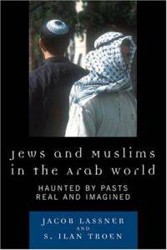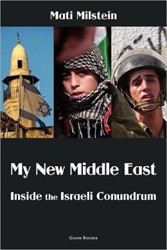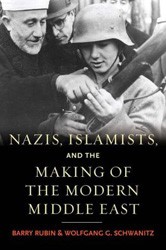Jeffrey Goldberg is now an award-winning investigative journalist and the Washington correspondent for The New Yorker, a favorite magazine of urban left-leaning secular cosmopolitans. But in the late 1980s, Goldberg was a dogmatic, hyped-up Zionist, a recent college graduate who was convinced that the only place a self-respecting Jew should live was a rigidly socialist kibbutz in Israel. He’d been bullied and humiliated by gentiles in the schoolyard, and, as is the case with so many other Jewish men, that fueled his admiration of the muscular we-don’t‑take-no-guff Israelis. So in 1990, Goldberg found himself as an MP at the Israeli military prison Ketziot during the first Intifada. It’s his experience at Ketziot and his impressions of the men he met there that forms the heart of this book that’s part memoir, part reportage. Ketziot housed many of the current and future leaders of the Palestinian resistance, and Goldberg was shrewd and curious enough to develop as many relationships as he could. Perhaps he knew even then that he wouldn’t remain in Israel, or maybe it was the reporter in him that drew him to talk with the prisoners and try to find out what they were thinking. That certainly wasn’t the attitude of his Israeli colleagues. Goldberg is refreshingly nonideological in his descriptions of both the Israelis and Palestinians he meets at Ketziot. There’s a generous supply of brutes and nincompoops on both sides.
His favorite prisoner to talk with is a scholarly fellow named Rafiq. Although Rafiq is evasive about his political affiliations, he has a sense of humor — notably lacking among both Israelis and Arabs at Ketziot — and Goldberg seems desperate to make friends. That neediness informs most of this account of their relationship. Goldberg continues to see Rafiq when the Palestinian moves to Washington, D.C. to attend graduate school and becomes ever more rigid and censorious about American culture. He seeks him out in Abu Dhabi, where Rafiq moves from the U.S. He visits his family in Gaza, always hoping to connect. While Rafiq and his relatives are uniformly courteous, in the famed Arab style, there’s no indication that they ever think of Goldberg as other than a nosy Jew, someone who pops up periodically, but with whom they have no real ties. It’s always Goldberg chasing Rafiq, never the other way around. That may be the most profound and unsettling of the impressions a reader takes away from this book. If this is what passes for friendship between Jew and Muslim in the Middle East, we have a bleak future.




